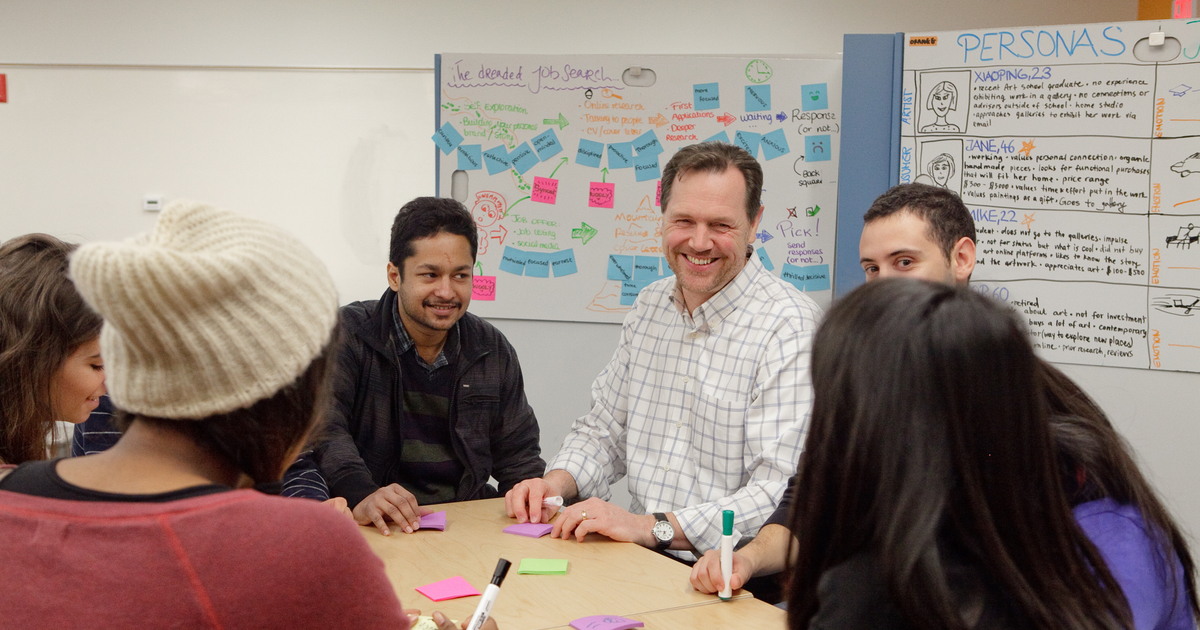We Need Innovation in Leadership. Here’s How to Teach It.

Babson Professor and Associate Dean of Graduate Programs and Innovation Sebastian Fixson has decades of experience teaching innovation, and the research to back it up.
Fixson knows that to be an entrepreneurial leader, one must learn how to listen.
“In a highly uncertain environment, entrepreneurial leaders combine the courage to act with the humility to listen to others to ultimately create solutions that are beneficial for all stakeholders,” said Fixson.
So, then, how does one teach innovation in leadership?
Innovation can mean many different things to different people, Fixson says. In the popular press, for example, innovation is equated to gadgets such as cell phones.
“But, if you take a step back and look at the bigger picture, innovation really is an organizational capability. And, it’s required for organizational growth and renewal. Creating the conditions for this capability to emerge, grow, and flourish is a leadership task,” he said.
Fixson—who recently won the 2020 Maurice Holland Award for best papers published in research for his work that appeared in the Research-Technology Management journal—explains how to teach innovation to an entrepreneurial leader. And, how that translates to companies.
How to Teach Innovation in Leadership
First, Fixson puts his students in a variety of settings designed to teach them different aspects of innovation. This also highlights what it means to be an entrepreneurial leader.
“One such scenario is a semester-long MBA elective, Product Design and Development (PDD),” said Fixson. “The setting is teams of four or five. The students do user research, generate concepts, build prototypes, and test their ideas, mostly around small consumer products.”
In this setting, after three months, students have prototypes. And, they have hands-on experience with different aspects of innovation in leadership.
“One team researched and designed an urn for sea burials for an external client company. This project was interesting because, through detailed user research, the team learned about a technical feature of the product that was critical for its success,” explained Fixson.
“When you teach innovation, it is different as it is both a question of individual capabilities, as well as of the team and ultimately the organization.”
Sebastian Fixson, Babson College Professor and Associate Dean of Graduate Programs and Innovation
When asked how to teach innovation, Fixson looks at it differently from more traditional subjects such as math.
“When you teach innovation, it is different as it is both a question of individual capabilities, as well as of the team and ultimately the organization,” said Fixson. “You have to train all of these levels,” he said.
Fixson developed courses to teach innovation on the organizational level. In Innovation Processes, Fixson teaches students to create organizational structures and management systems that empower others to be innovative.
“These courses are hands-on, but they are messy,” said Fixson. “They are very open-ended, and the end is totally unclear.”
Learning During Our Next Normal
Fixson brings it all home with a realistic assessment about the future of teaching innovation. And, the opportunities that await.
“The level of uncertainty that the COVID-19 pandemic has created, coupled with large systemic challenges such as racial inequality and climate change, makes efforts to predict the future by extrapolating the past less and less useful,” he said.
Instead, he points out, we have to find new ways to adapt to the changing environment.
“The ability to innovate, with its underlying skills and mindset, is now more important than ever. The new environment, with a much greater virtual component of teaching and learning, presents a great opportunity to innovate teaching in the service of teaching innovation,” said Fixson.



